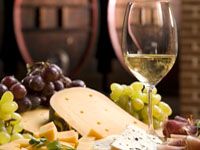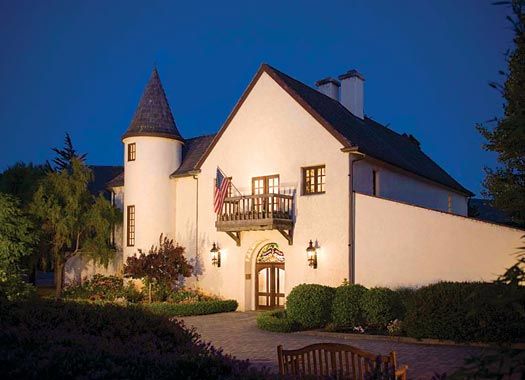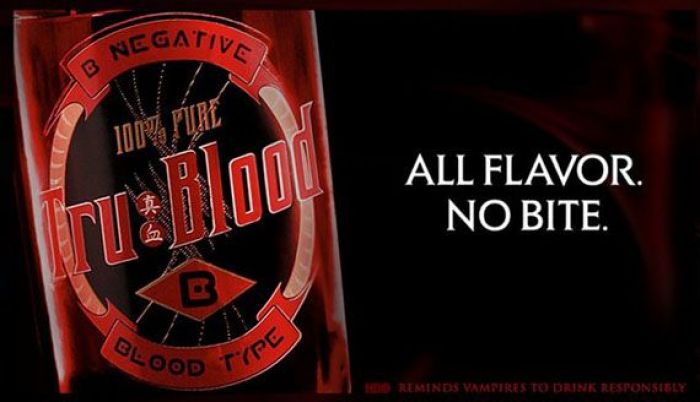
Perhaps the two questions I get asked most frequently, at least from newcomers into the world of wine, are "How do I know if it's good?" or, my personal favorite, "How do I know if I like it?" Since these questions would be so easily answered when it comes to any other food or beverage, it makes me wonder: What is it about wine that is so intimidating?
I don't think I've ever heard of someone going into an ice cream store, ordering a flavor and, after the first bite, inquiring to their friend as to how they will know if they like their ice cream. It just doesn't happen. When we taste something, our taste receptor cells (the fungiform papillae, or the large bumps) on our tongue register the taste and then the gustatory cortex, a section of the surface of the brain near the back, processes these taste inputs. Of course this all happens in a millisecond, but you immediately recognize whether or not you enjoy the taste of this experience. In this respect, wine is no different than ice cream or brussels sprouts. If you like it, you like it.
Unfortunately (in my opinion), a select few individuals have risen to elitism within the wine realm. These people no doubt have extremely sophisticated palates that can detect fine detail, but a shocking number of people turn to these icons for their own tastes. It goes back to the ice cream parlor analogy and me asking someone other than myself if I like Chocolate Chunk ice cream. Although others' opinions can be educational, they can't replace our own experience with whatever it is we're ingesting. Utilizing the 100 point scale to rate a wine, prominent wine reviewers dictate to the masses which wine is good and which is not. This is a wonderful reference for those of us who can't try 100 different wines from around the world every day, and in no way am I saying that a 94 point wine isn't great or that these individuals are misleading; quite the contrary. You can feel confident that a 94 point wine is an exceptional wine, BUT - you might not like it.
 Trust your own judgment and instincts. If you turn your nose up at a $75 bottle of wine but ask for a second glass of that savory $6 Zinfandel, there's nothing wrong with that. At Lamborn, we have a $42 per bottle Zin and a $110 Cabernet, both made by cult wine creator and "celebrity" winemaker Heidi Barrett. Both of these wines are exceptional (true, I am biased, but they really are), especially in value considering what goes into the wines in terms of land, quality, winemaker, and strict quality control. But that doesn't mean more expensive wines than ours are necessarily any better, or cheaper ones any worse.
Trust your own judgment and instincts. If you turn your nose up at a $75 bottle of wine but ask for a second glass of that savory $6 Zinfandel, there's nothing wrong with that. At Lamborn, we have a $42 per bottle Zin and a $110 Cabernet, both made by cult wine creator and "celebrity" winemaker Heidi Barrett. Both of these wines are exceptional (true, I am biased, but they really are), especially in value considering what goes into the wines in terms of land, quality, winemaker, and strict quality control. But that doesn't mean more expensive wines than ours are necessarily any better, or cheaper ones any worse.
Wine has been given a high status as an "upper echelon" beverage. It is a fantastic elixir that can make great food even better (and vice versa), enhance any social gathering, and spark lively and intellectual conversation. Wine is a romantic expression of not only the land and vines from where it came, but also from those spirited individuals who put themselves into the growing of the grapes and the making of the wine. Wine is a lot of things and can do a lot of things, but it shouldn't be intimidating.
Like most things, the more you familiarize yourself with wine, the more you experience the different regions, varietals, winemakers, etc., the more you will learn. Buy and drink cheap wines, expensive wines, and everything in between. You'll surprise yourself with just how much you will begin to trust your own judgment. When you smell or sip any wine, all of the intricate details that a sommelier can identify will be experienced by your tongue and your brain, and will add up to something that you like, dislike, or are indifferent to. But instead of ruining the experience by trying to force yourself to agree with the critics and dissecting the wine with logic, try just breathing it in, swallowing it down, and seeing how you react. Take note of what stands out and learn from there.
 Tasting classes, reading books, an informal get together with friends over a bottle, and online forums are all great ways to expand your knowledge, and you will certainly learn quite a bit more if you surround yourself with people who have already started down this same road. I am hosting a wine event, "Wine on the Fly," this summer in Big Sky, Montana featuring some winemakers who helped pave this road: Heidi Barrett of La Sirena, Bo Barrett of Chateau Montelena, Justin Stephens of D.R. Stephens Estate/Hunnicutt, and Mike Hendry of Hendry. Designed for both neophyte and oenophile, these wine professionals will be pouring their wines and helping us all gain a better understanding of their craft. If you are interested, please visit outdoorwineadventures.com to see if the trip still has availability. But in the meantime, eat, drink, and listen to what your gustatory cortex is telling you - it's never wrong!
Tasting classes, reading books, an informal get together with friends over a bottle, and online forums are all great ways to expand your knowledge, and you will certainly learn quite a bit more if you surround yourself with people who have already started down this same road. I am hosting a wine event, "Wine on the Fly," this summer in Big Sky, Montana featuring some winemakers who helped pave this road: Heidi Barrett of La Sirena, Bo Barrett of Chateau Montelena, Justin Stephens of D.R. Stephens Estate/Hunnicutt, and Mike Hendry of Hendry. Designed for both neophyte and oenophile, these wine professionals will be pouring their wines and helping us all gain a better understanding of their craft. If you are interested, please visit outdoorwineadventures.com to see if the trip still has availability. But in the meantime, eat, drink, and listen to what your gustatory cortex is telling you - it's never wrong!Brian Lamborn
JustLuxe Contributor
outdoorwineadventures.com














